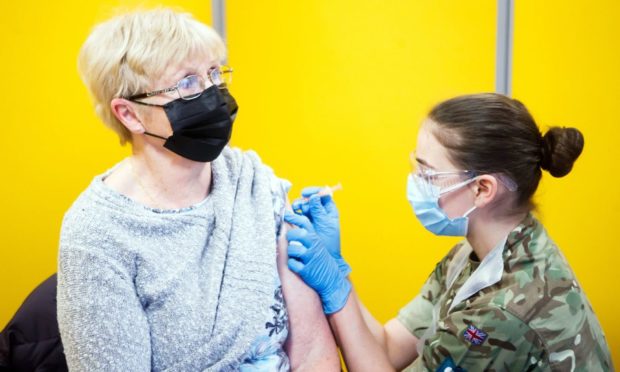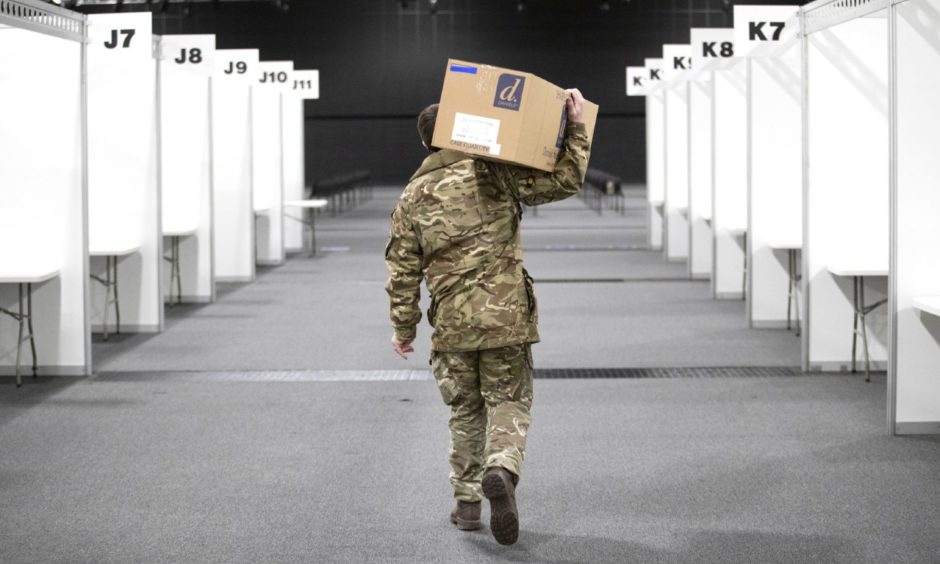There was an interesting moment during First Minister’s Questions on Wednesday — no, stay with me — as Nicola Sturgeon responded to a query on the High Street from a Tory MSP.
Answering Liam Kerr, the first minister joked she would “resist the temptation” of accepting responsibility for having to fill empty retail units after it was confirmed the big Debenhams on Union Street was to close.
It is a fate befalling towns and cities across Scotland right now, but the most intriguing part was Ms Sturgeon joking about it not being her look out.
The apparent flippancy of the response currently being claimed remains to be seen — politics can be a tough old business and, who knows, maybe the deputy first minister told a corker?
But anyone who has embraced, acknowledged and even suffered through the daily briefings on coronavirus would accept, in her answers, at least, if not actions, Ms Sturgeon likes to take responsibility for things.
Take last month, when the Army was called in to help in the vaccine roll-out. The first minister was asked, by us, about her involvement in the decision to call in the troops.
In response, the SNP leader said: “I tend to be involved, to a greater or less extent, in all of these decisions.
“But, you know, clearly decisions are made at different levels, but I take responsibility for everything, whether I always like it or not.”
So the question remains, did she approve (or could she) the involvement of the army in the vaccine roll-out?
Scotland has the slowest proportional rate of vaccine administered in the UK. That is not to detract from the health workers, doctors, nurses and volunteers who have strived to get needles into arms.
But why, then, have logistics specialists from the Royal Dragoon Guards been brought in? Why do we have slumps on Sundays with the number of people being vaccinated? Why haven’t we been told, even on repeat asking, when our mass vaccination centres will be at full, 20,000 person-per-week capacity?
In search of a straight answer
These are all questions members of the press, and opposition parties, have put to the first minister and Scottish Government.
So far, we have not had a straight answer, regardless of who is taking responsibility.
It should be noted that there seems to be confusion on how many vaccines each of the four nations officially has and, more importantly, what stage of the supply chain they are in.
It is not much use having hundreds of thousands of vials ready to go 500 miles down the road, nor is it having hundreds of them in GP surgeries over the weekend, when hard-pressed doctors, nurses and reception staff are on well-earned days off.
While the number of vaccines remains unpublished due to “commercial sensitivity”, or “political gaming in an election year”, it should be reasonable for the government to tell us the details of the vaccine delivery programme in full, given the needle-sized glimmer of hope inoculations gives us.
Coronavirus vaccination minister?
There has been a year to develop the country’s infrastructure to vaccinate our population.
The only thing that should be limiting vaccine delivery at this stage is the availability of them to our mass centres — not training times, not confusion over community or large-scale hubs and certainly not what colour envelope appointments come in.
This is something all of our political leaders should be acknowledging, regardless of who is taking responsibility.
With this in mind, should the first minister be taking absolute overall responsibility for every aspect of the coronavirus pandemic response? Would the introduction of a minister with the sole responsibility of getting vaccines into arms have not served the country better?
The lack of delegation highlights several things in our current government — firstly, like our health service, our first minister is spread too thin.
Secondly, there is a either a worrying lack of talent in the SNP or she has so few people she can trust, after 13 years in power, she will continue to succumb to the temptation of taking on the responsibility regardless of how detrimental it could prove.


